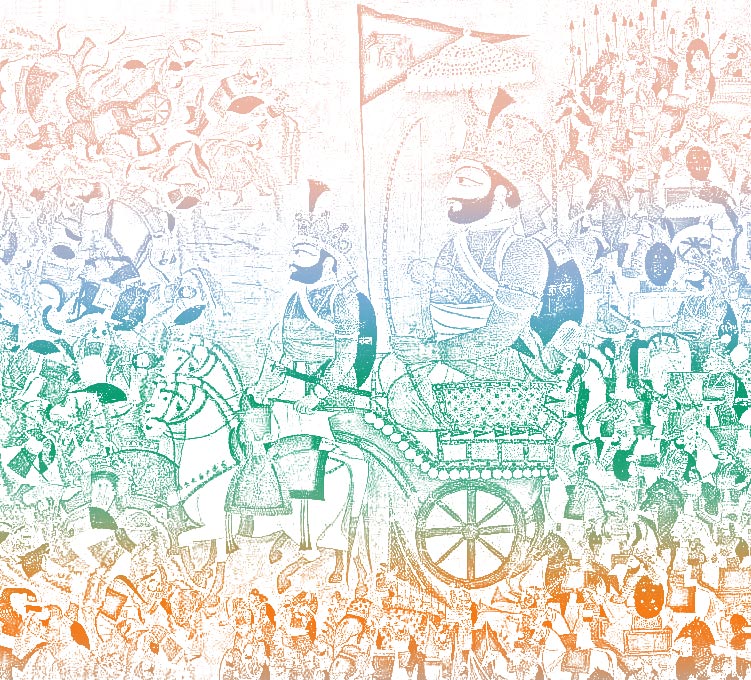A glimpse of the most debated character of the epic, Mahabharata. Throwing light on the different facets of his persona and why Karna is still an important figure in the epic.

Karna, was born to Kunti with the blessing of Siddha mantra blessed on her by Rishi Durvasa. The rishi Durvasa blessed her with the boon because he was impressed with her sincerity in service. Kunti was blessed with a son with the blessings of God Surya after she recited the Siddha mantra. But due to the given circumstances of the era she could not raise him by herself before marriage and hence, had to give the child up.
This is when the newborn was separated from his birth mother and was raised by a chariot driver and his wife. They named him Vasushena. His new parents were honest with him and informed him that he was adopted. This impacted the teenage Vasushena, emotionally. It started a conflict within him over his identity and the pain from the knowledge of his abandonment.
This emotional impact on him plays a big role in his life and affects a series of events that play out in the epic of Mahabharata.
Born with the Extraordinary
He was born with the boon from the God Sun. This in itself has a great impact on his abilities and talent which made him stand apart in every way during his childhood and adulthood. His exceptional talents played a huge role in giving a major twist in the tale of the epic Mahabharata.
He was born with a natural Kavach or a Shield and Golden Kundals or Earrings because he was a gift of the God Sun. He was an excellent and extraordinary archer and was taught by Rishi Parashuram. He was so good at Archery that he became undefeatable.
The Birth of Karna
He was called by many names like Vasushena, Radheya, Daanveer and many more. However, he got his most popular and celebrated name Karna much later in life. Lord Indra gave him the name Karna when he valiantly saved his son Phalguni by giving up his natural shield.
This act of valour, courage and sacrifice greatly impressed Lord Indra and he awarded him the name Karna. This is when he was Karna the first time.
Karna became Angraj
Given the circumstance of the society of the era, only princes were allowed to participate in all the archery tournaments. Karna, being the superlative archer, wanted to participate but could not since he was not a prince.
However, Duryodhana, one of the Kauravas intervened after observing the potential of Karna and awarded him the Title of Angaraja and the area Anga of his kingdom to make him eligible for the archery contest. Karna participated against Arjuna, who was also known for his excellence in Archery and they competed against each other.
Karna became known to be an equal of Arjuna in Archery.
This incident also marks the beginning of Karna’s unconditional friendship to Duryodhana, which becomes a matter of great debate in the epic of Mahabharata.
The Birth of Vrisha
During his entire lifetime, Karna displayed a spotless character despite his friendship with Duryodhana. He was committed to speaking Truth and being extremely generous and courageous to everyone.
During battles and the war of Mahabharata, he earned the title of Virsha which also means Bull due to his ability to always stand true to his promises and words.
Karna, with his flawless conduct, courageous nature and excellence in warriorship became the one of the most celebrated and debated character in the epic of Mahabharata.
Indian mythology is rich with characters and tales that leave significant impressions and deep insights, sometimes forming a correlation with today’s society and time as well. To know the diversity and vast versatility of Indian mythological characters, its rich culture, and traditions, stay hooked to Sameedh and explore more! Browse across varied topics and expand your knowledge!
